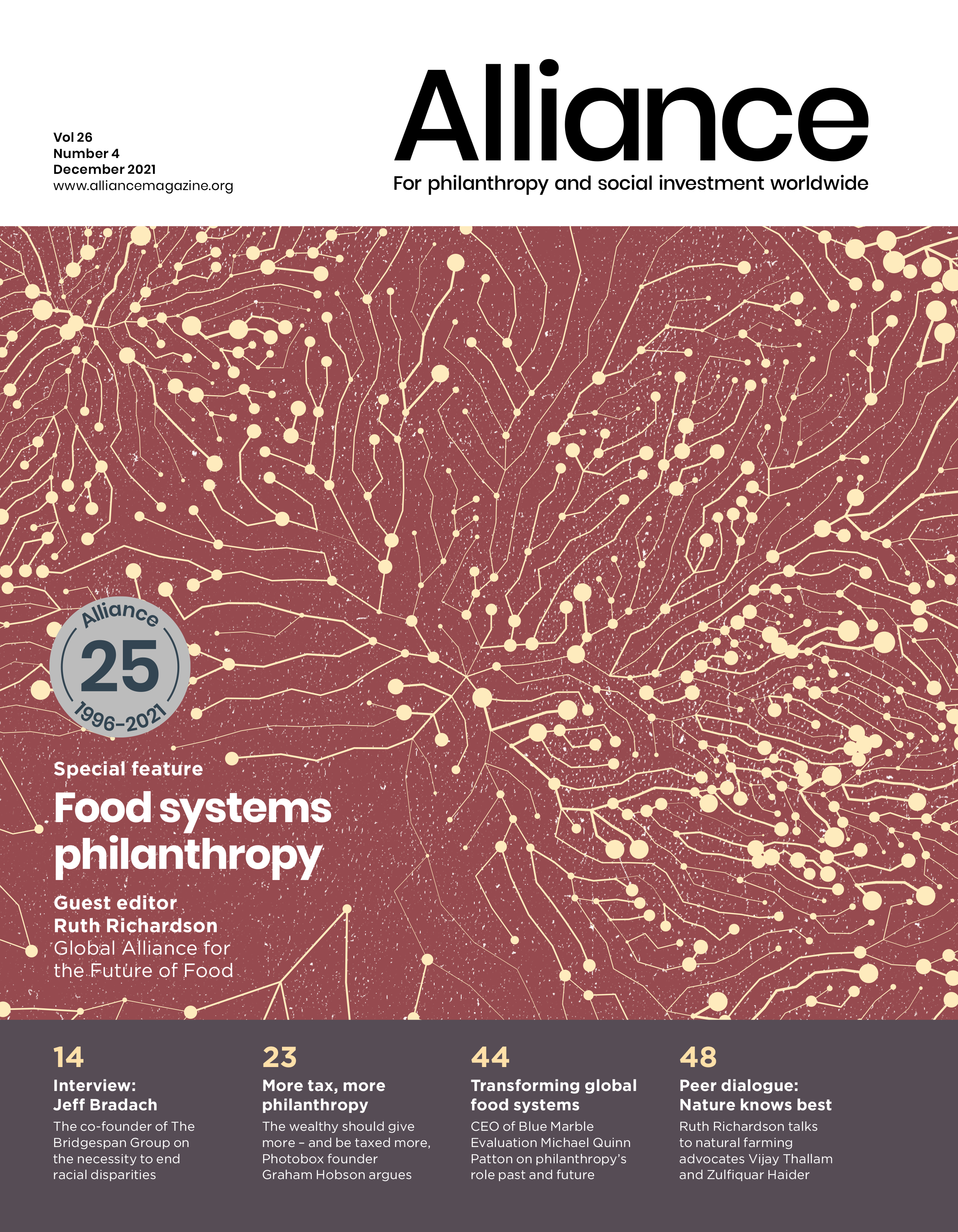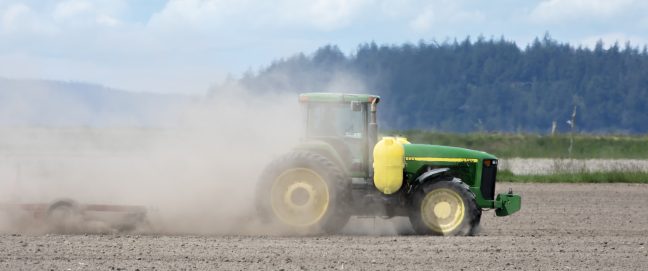Climate change and the pandemic have brought deficiencies in food systems into stark focus. ‘Natural farming’ offers one possibility for much-needed change. Guest editor Ruth Richardson talks with Vijay Thallam of the Andhra Pradesh Community-managed Natural Farming programme[1] in India and Zulfiquar Haider, head of programmes and strategy at the Azim Premji Foundation
Ruth Richardson: Food insecurity hasn’t been far from the headlines in 2020 and 2021. How are food production and consumption connected to the big global challenges like climate change, hunger, women’s empowerment and public health?
Vijay Thallam: We have multiple emergencies – livelihoods of farmers, food and nutrition insecurity, food induced ill health, soil health, water availability, biodiversity – all of which are being exacerbated by global warming and extreme weather events. What we are seeing through our work is that natural farming principles and practices enable more production, more nutrient-dense food, and at the same time have a positive impact on soil carbon and water retention. This is really a solution for food security, hunger, public health and climate change.
Zulfiquar Haider: For the poor, which includes large portions of the small and marginal farmers in countries like India, the reality of life today is poor nutrition and precariousness of livelihood. While hunger has been a focus of international and national action over the last two decades or so, true well-being and nutrition continues to remain another story. Just consider how India’s stunting rate is 38 per cent, second highest after Afghanistan at 41 per cent. Also consider how debt, crop failure due to climate, high price fluctuations for produce, and increasing costs of chemical-intensive agricultural inputs have combined to make agricultural livelihoods very precarious, especially for smallholders who make up 85 per cent of all farmers in India. We are not connecting agendas.
Subscribe now from only £45 a year!
This article is only available for our subscribers
Existing users can login here





